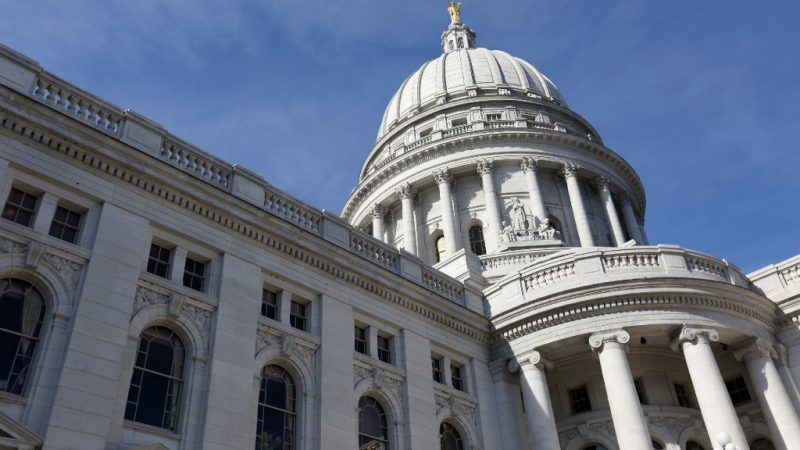The St. Croix County judge overseeing a lawsuit seeking to strike down Gov. Tony Evers’ extended mask mandate quizzed attorneys on why lawmakers weren’t being asked to end the order rather than the judiciary.
Judge R. Michael Waterman on Monday indicated he was “wrestling” with the idea that lawmakers were “asking the third branch of government, the judiciary, to step in and exercise a power that the Legislature reserves to itself.” The conservative Wisconsin Institute for Law & Liberty brought the suit, but GOP lawmakers filed a brief backing the action.
Under state law, the Legislature has the power to extend or strike down a gubernatorial declaration of a state of emergency.
WILL attorney Anthony LoCoco argued Evers’ interpretation of his ability to declare public health emergencies granted him “almost unlimited unilateral power.” According to LoCoco, the emergency order issued by Evers should be invalid because it stems from the coronavirus pandemic, an emergency he has previously issued orders to combat.
>> WisPolitics is now on the State Affairs network. Get custom keyword notifications, bill tracking and all WisPolitics content. Get the app or access via desktop.
But Waterman questioned why lawmakers couldn’t take action to strike down Evers’ public health emergency and mask mandate.
“If we had an abuse of power like you described, the Legislature could simply pass the joint resolution,” Waterman said. “If the Legislature for reasons — divided government, that the votes aren’t there or whatever — but those are political ramifications that the voters address at the ballot box, isn’t it?”
LoCoco countered it would not be an “effective procedural safeguard” if the Legislature had to continually reconvene to strike down emergency declarations if the guv only made slight tweaks to fit changing circumstances.
Meanwhile, Assistant Attorney General Colin Hector argued the worsening state of the coronavirus pandemic made it clear the mask mandate and accompanying executive order were issued under a different set of circumstances.
Hector used the analogy of a river prone to flooding to illustrate his point.
“It floods for five weeks, but it subsides for a few weeks and then it starts rampaging across portions of the state,” he said. “It can’t possibly be the case that the governor needs to sit down and says, ‘Well, golly, gee, did the water subside enough so that this represents a distinct disaster?'”
Hector also argued it was incumbent upon lawmakers to strike Evers’ order down.
“It can’t possibly be the case that they can have the courts make that decision for them,” he said.
Waterman decided he needed to take the issues presented under advisement but pledged to make a decision “very, very quickly.”
“You have both given me a lot to think about,” Waterman said. “This isn’t an easy issue, this is a very complicated legal issue involving statutory interpretation, constitutional implications and other things.”
Still, he acknowledged during oral arguments he expected his ruling to be “the first step in a longer process” and indicated “courts are reluctant to grant the ultimate relief on a temporary basis.”
Although the case was originally filed in Polk County Court, Waterman, a St. Croix County judge, heard the case after the two judges in the original jurisdiction recused themselves.




